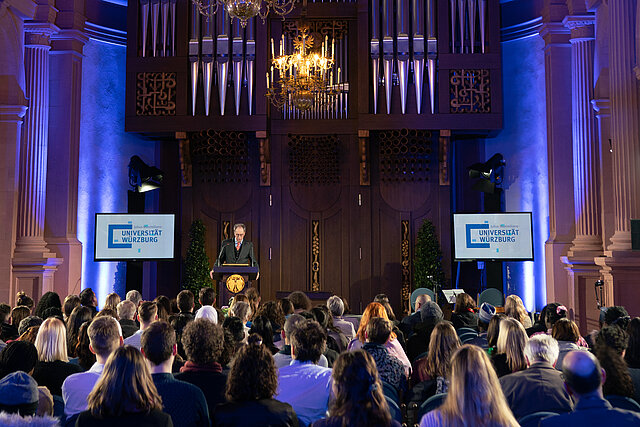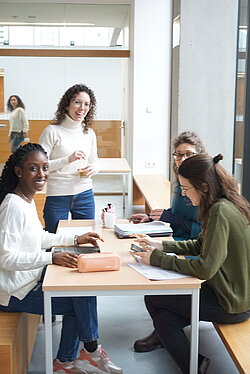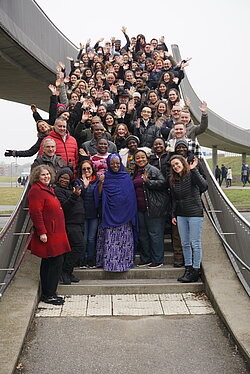Adult Education Academy 2023
10th International Adult Education Academy
Comparative Studies in Adult Education and Lifelong Learning
6-17 February 2023 in Würzburg, Germany
Every February, the Professorship for Adult and Continuing Education hosts the Adult Education Academy (formerly: Winter School) where students, colleagues from the field (so called “practitioners”), and lecturers from around the world exchange on international perspectives of adult education and lifelong learning.
This year was a very special one for two reasons:
Firstly, this year we were very happy to welcome most of our participants and lecturers from all over the world back to Würzburg for the second week for a hybrid AEA after two years of virtual get-togethers!
Secondly, this year's Academy marks a milestone: for the tenth time, academics and practitioners came together in the programme and enriched the adult education community with a lively exchange of ideas, expertise and experience.
Between February 6th – 17th 2023, 82 participants from 19 different countries exchanged, compared, and expanded their individual knowledge and experience within the field of adult and continuing education and lifelong learning. Master’s and doctoral students as well as adult education practitioners and lecturers worked together in the AEA. On this occasion, a festive programme was put together in the historic Neubaukirche in Würzburg.
More insights into the Programme, impressions of the day as well as a video of the lifestream of the event can be found > here.
Connecting theory and practice
During the first week of the AEA, which took place online, participants took a closer look at strategies and theories in adult education while being divided into two different groups, each with a different focus. Prof. Regina Egetenmeyer, head of the Professorship for Adult and Continuing Education at the University of Würzburg, and Prof. Paula Guimarães, assistant professor at the Institute of Education of the University of Lisboa, Portugal, served as lecturers in the first group, supported by guest lecturers with input on policy perspectives in adult education and lifelong learning.
Prof. Licínio Lima from the University of Minho, Portugal, lectured the second group and focused on readings and discussions of selected writings by Paulo Freire. Participants in this group developed their theoretical-analytical abilities on adult education.
The insights were complemented by virtual field visits to adult education institutions in Würzburg. Students and practitioners were introduced to local institutions such as the Volkshochschule (Adult Education Centre) Würzburg and Surroundings e.V., the Frankenwarte Academy, Würzburg and the Chamber of Commerce and Industry (IHK) Würzburg-Schweinfurt. Furthermore, the participants had the opportunity to virtually visit international adult and continuing education institutions such as the University of Science & Technology Meghalaya (USTM) (India) as well as international associations like the Letras para vida project and PegasoNet.
Comparative group work: an international comparison of adult education structures
For the second week, students compared diverse aspects of adult education in nine different groups. One of these comparative groups for example explored how digital competences can be acquired through study programmes in adult education. Another group examined how adult education can evoke active democratic citizenship. Comparing these aspects and systems of adult education among the different home countries of the participants helped to analyse the differences and similarities between them.
On the last day of the Adult Education Academy, all groups presented the results of their comparisons to each other. The presentations were a great way to conclude the two weeks of intense lectures and discussions.
International comparative Adult Education in a hybrid setting: facing and overcoming challenges together
Drawing on the many experiences of implementing the Adult Education Academy in a virtual space that the team has been able to gather over the last two years, a concept for an Academy in a hybrid setting was worked out in close cooperation with the moderators of the Comparative Groups.





